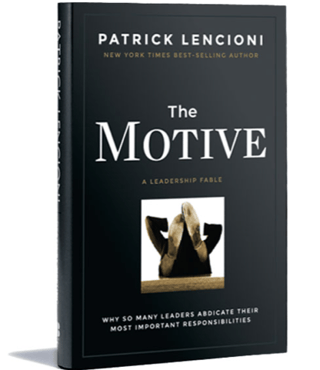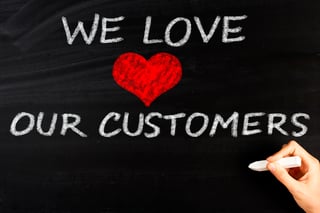Growth Insights for CEOs

GEO – What it is and Why You Should Understand It
Part 2 of our four-part series exploring how AI search is transforming visibility, SEO, and digital strategy - and what CEOs need to do now to stay competitive.
| Executive Takeaways |
| GEO is about optimizing for answers within AI search engines. Ranking well doesn’t guarantee visibility anymore – AI citations are needed too. Offsite reputation and mentions are just as critical as on-page SEO. |
Recent Posts

Shooting Some Holes in the Minimum Viable Product
Thu, Apr 2, 2020 — With the right vision, appropriate resources, and more than a sprinkle of luck, a really good idea can quickly become a sensational success. When that happens, as late-night comedian John Oliver might say, such an idea becomes “a thing.” Unfortunately, when a good idea becomes “a thing” — like the product equivalent of John, Paul, George, and Ringo – the quality can suffer if too many producers try to put their imprint on the hit record. The idea can get watered down, generalized, and misused.

Achieving Revenue Growth and Excellent ROI with a Radio Restaurant Promotion
Thu, Mar 26, 2020 — Those of you in the restaurant chain or franchise business may enjoy the details of this successful restaurant promotion executed by Doug Reifschneider. Doug was Vice President of Marketing at Pita Pit at the time, but recently joined Chief Outsiders as a fractional CMO. The promotion involved six Pita Pit restaurants located in Northern Idaho and the Spokane area who agreed to pool funds to test a cooperative advertising program. The test included a guerrilla radio advertising tactic, print, social and email support with offers to encourage trade-up and increase party size.

What can Professional Services CEOs do Right Now?
Thu, Mar 19, 2020 — Industry Specific Advice in a Time of Crisis from the Chief Outsiders CMOs These are challenging times. The actions you take now and in the coming weeks will have a huge impact on what happens to your company, your customers and your employees. Some of the challenges we will face during this crisis will apply to all sectors, but some will be industry specific. To help you decide where your focus should be, we assembled panels of Chief Marketing Officers from our Tribe at Chief Outsiders who have spent their careers working in your industry with companies like yours, to discuss what CEOs need to think about doing, right now. The following summary encapsulates the highlights of our panel discussion for the Professional Services industry, hosted by Art Saxby. Featuring CMOs Paul Sparrow, Mark Coronna and Don Lee. For the full benefit, view the discussion video in its entirety (35 minutes). Short of time? See the discussion highlights (6 minutes).
Stay up-to-date with the latest from Chief Outsiders

What can Industrial and Manufacturing CEOs do Right Now?
Thu, Mar 19, 2020 — Industry Specific Advice in a Time of Crisis from the Chief Outsiders CMOs These are challenging times. The actions you take now and in the coming weeks will have a huge impact on what happens to your company, your customers and your employees. Some of the challenges we will face during this crisis will apply to all sectors, but some will be industry specific. To help you decide where your focus should be, we assembled panels of Chief Marketing Officers from our Tribe at Chief Outsiders who have spent their careers working in your industry with companies like yours, to discuss what CEOs need to think about doing, right now. The following summary encapsulates the highlights of our panel discussion for the Industrial Manufacturing industry, hosted by Art Saxby and featuring CMOs Dawn Werry, and Dennis Bailen. For the full benefit, view the discussion video in its entirety (19 minutes). Short of time? See the discussion highlights (6 minutes).

What can Travel and Hospitality CEOs do Right Now?
Thu, Mar 19, 2020 — Industry Specific Advice in a Time of Crisis from the Chief Outsiders CMOs These are challenging times. The actions you take now and in the coming weeks will have a huge impact on what happens to your company, your customers and your employees. Some of the challenges we will face during this crisis will apply to all sectors, but some will be industry specific. To help you decide where your focus should be, we assembled panels of Chief Marketing Officers from our Tribe at Chief Outsiders who have spent their careers working in your industry with companies like yours, to discuss what CEOs need to think about doing, right now. The following summary encapsulates the highlights of our panel discussion for the Hospitality/Travel/Entertainment industry, hosted by Pete Hayes and featuring CMOs Deborah Fell and Adriana Lynch. For the full benefit, view the discussion video in its entirety (17 minutes). Short of time? See the discussion highlights (5 minutes).

What can a Financial Services CEO do Right Now?
Thu, Mar 19, 2020 — Industry Specific Advice in a Time of Crisis from the Chief Outsiders CMOs These are challenging times. The actions you take now and in the coming weeks will have a huge impact on what happens to your company, your customers and your employees. Some of the challenges we will face during this crisis will apply to all sectors, but some will be industry specific. To help you decide where your focus should be, we assembled panels of Chief Marketing Officers from our Tribe at Chief Outsiders who have spent their careers working in your industry with companies like yours, to discuss what CEOs need to think about doing, right now. The following summary encapsulates the highlights of our panel discussion for the Financial Services industry, hosted by Pete Hayes. Featuring CMOs Rich Smith, Chris Wallner and Bill DeWitt. For the full benefit, view the discussion video in its entirety (12 minutes). Short of time? See the discussion highlights (5 minutes).

The Motive – Lencioni’s Best, With a Catch
Thu, Mar 12, 2020 — I don’t know about you, but I look forward to a new Patrick Lencioni book like I do the next Grisham novel. Not for entertainment purposes (while they are always a fun read), but from the sheer joy of reading an expression of well-crafted thinking. In Lencioni’s latest (and greatest) fable and framework – The Motive – Patrick does not disappoint. But there’s a catch. While this may be his most important work, it may become his least popular. Why? Because rather than challenge his business leadership audience with new methods, he’s challenging us with a completely new mindset; and one that many of us will instinctively fight.

Are You Loyal to Your Customers?
Wed, Mar 4, 2020 — Loyalty, not such a long time ago, was a fairly easy thing to cultivate. You give a punch card or green stamps (or even wooden “round-tuits,” some of you may recall) to your customers, and they reward you with frequent visits or purchases so they can earn the points or badges to pocket free stuff. Even today, as businesses like restaurants, retail stores, airlines and hotels work to digitize and mobilize loyalty programs, customers still find it exciting and compelling to rack up the rewards.

Five Major Indicators that Suggest a Need for Focus
Tue, Mar 3, 2020 — A Common Challenge for B2B technology, SaaS and Professional Services Businesses If market demand was a fixed commodity, attracting new business would require only that you create awareness and build interest around well-known needs. Companies who see their marketplace in this way often subscribe to a “lather, rinse, repeat,” approach to pipeline management – focusing marketing dollars on prospects already well-along their purchasing journey, identifying qualified opportunities, but paying little attention to the world of prospects who do not yet see their needs as urgent.
.png?width=1500&height=398&name=CO_Corporate%20Logo%202021_4C_HOR_FNL-1%20(1).png)